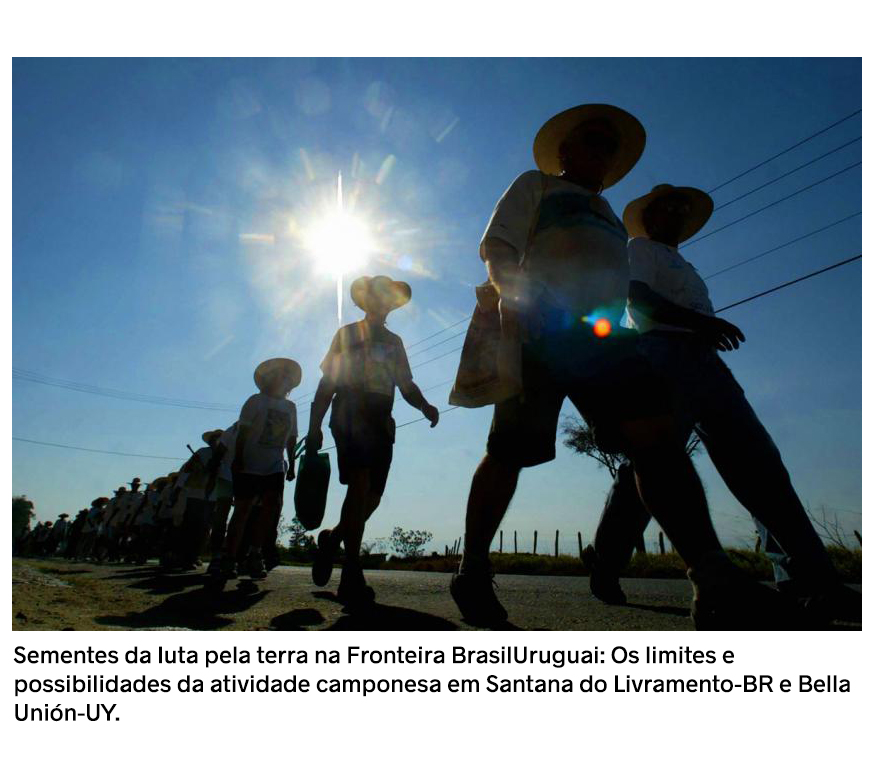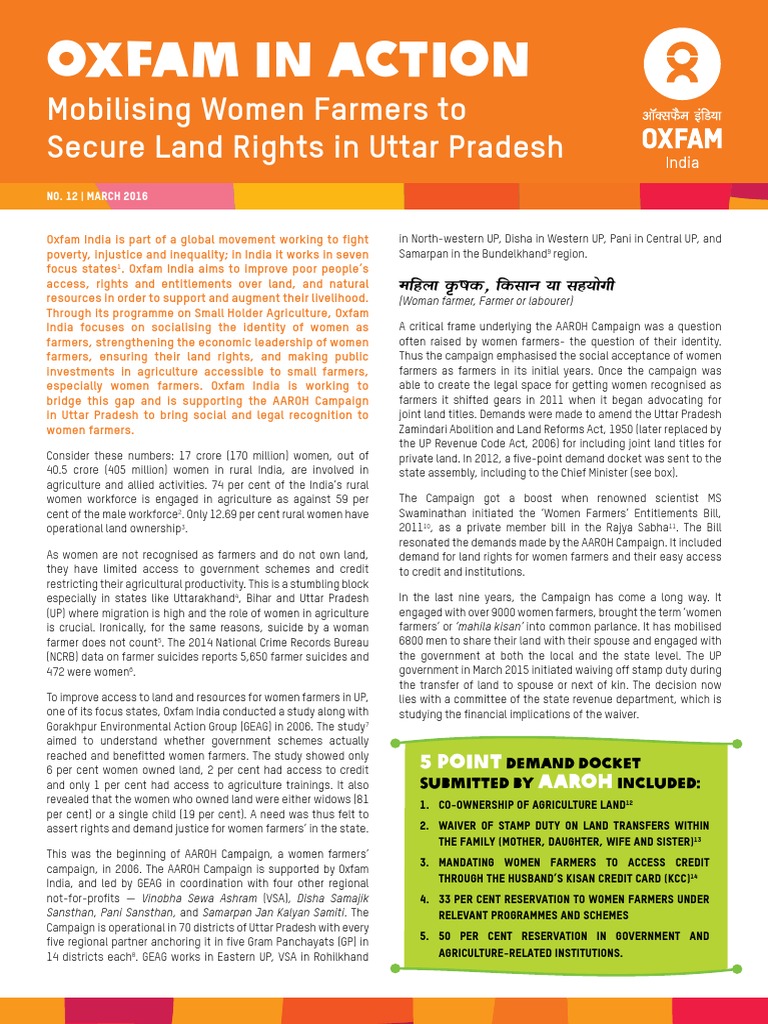Mobilising Women Farmers to Secure Land Rights in Uttar Pradesh
Oxfam India is part of a global movement working to fight poverty, injustice and inequality; in India it works in seven focus state. Oxfam India aims to improve poor people’s access, rights and entitlements over land and natural resources in order to support and augment their livelihoods. Through its programme on smallholder agriculture, Oxfam India focuses on socialising the identity of women as farmers, strengthening the economic leadership of women farmers, ensuring their land rights and making public investments in agriculture accessible to small farmers, especially women farmers.
Contract farming, productivity and fertilizer usage: Empirical evidence from specialty crop production
This study investigates the impact of contract farming (CF) in baby corn production on yield, irrigation costs, fertilizer costs and usage of chemical fertilizer. We find that adoption of CF by baby corn smallholders, after controlling for characteristics of both control and treatment groups, leads to higher yields and lower spending on fertilizers and irrigation. Additionally, CF in baby corn farming leads to a reduction in the use of chemical fertilizers (Urea and DAP).
The role of the private sector in food system resilience: Lessons from Cambodia
This paper assesses the role of the private sector by using the case study of Cambodia to learn specific lessons for increasing the resilience of food systems in the developing world. In order to develop a sustainable and lasting impact, it is imperative that both market actors and private actors be involved in addressing the new challenges facing vulnerable food systems.
Regional developments [In 2016 Global Food Policy Report]
In addition to global events and food policy changes, 2015 also saw important developments with potentially wide repercussions in individual countries and regions. This chapter offers perspectives on major food policy developments across the major regions: Africa, the Middle East and North Africa, Central Asia, South Asia, East Asia, and Latin America and the Caribbean.
Can contract farming in organic basmati rice be a boon to smallholders? Evidence from India
Demand for organic basmati rice (OBR), both at home and abroad, coupled with policy reforms in India have given rise to contract farming (CF) production in that nation. OBR production, however, is highly susceptible to weather and pest risks. This study investigates the impact of smallholders’ perceived production risks on their adoption of CF in OBR farming. We also assess the impact of CF in OBR production on yields, prices received, and the livelihood of OBR producers.
Regional developments [In 2014-2015 Global food policy report]
In addition to global developments and food policy changes, 2014 also saw important developments with potentially wide repercussions in individual countries and regions. This chapter offers perspectives on major food policy developments in various regions including Africa, the Middle East and North Africa, Central Asia, South Asia, East Asia, and Latin America and the Caribbean.
A quiet revolution emerging in the fish-farming value chain in Myanmar: Implication for national food security
Fish farming (aquaculture) is important to Myanmar’s food security and is developing and transforming quickly. This brief presents findings from a new field survey of the farmed fish value chain that is more detailed and broader than any previous study conducted in Myanmar. Many of our findings are at odds with what we perceive as conventional wisdom about fish farming in Myanmar. The findings have important policy implications to unlock the sector’s full growth potential and food security contributions.
Methodology [In East African agriculture and climate change]
Revitalized agriculture for balanced growth and resilient livelihoods: Towards a rural development strategy for Mon State
The purpose of this policy brief is to provide national and state-level policymakers, private sector investors, civil society and donors with an analysis of the rural economy of Mon State and pathways to improved prosperity for its population. The analysis is based on a representative survey (the Mon State Rural Household Survey 2015) of 1680 rural households, which comprise 73% of Mon State’s 2 million residents, and extensive interviews with farmers, traders, processors, local leaders and government officials.
Strategies for sustainable land management and poverty reduction in Uganda
The government of Uganda, with help from its development partners, is designing and implementing policies and strategies to address poverty, land degradation, and declining agricultural productivity. Land degradation, especially soil erosion and depletion of soil nutrients, is widespread in Uganda and contributes to declining productivity, which in turn increases poverty.












